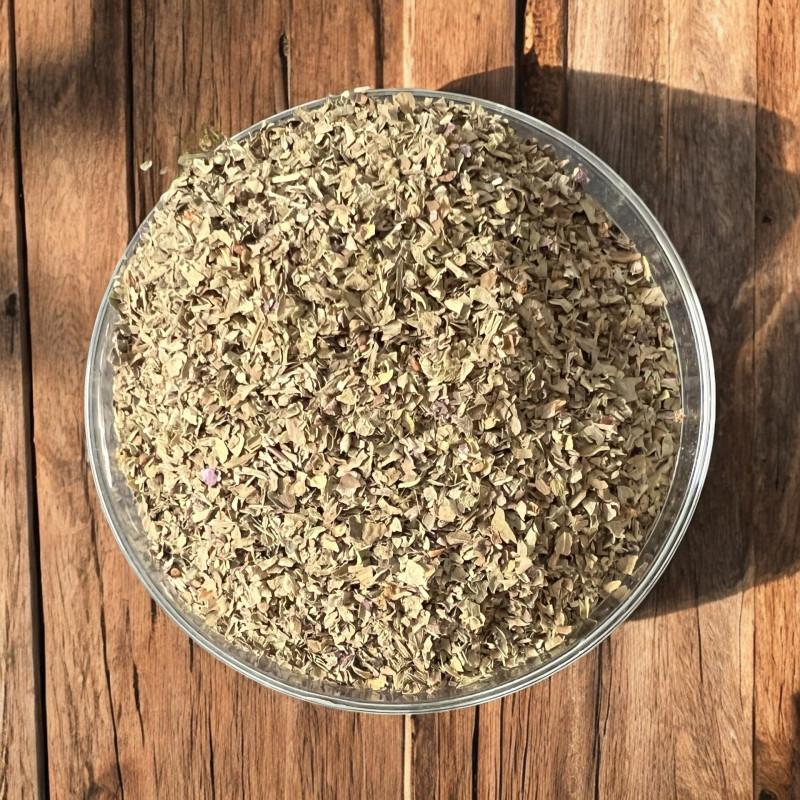- Reduced price



Its slightly lemony aroma evokes Provence and warm summer days!
Perfect for salads, tomato sauces, and Provençal cuisine in general.
 Delivery
Delivery
Mondial Relay
 Returns
Returns
See conditions
 Payments
Payments
100% secure
Livré en sachet refermable
°°°
Culinary Uses:
Basil brings a delightful sunny aroma to salads, tomatoes, zucchini, vinaigrettes, as well as fish, shellfish, and, of course, tomato sauces that pair wonderfully with pasta. Add it generously to your dishes—its bright flavor is simply delicious!
It’s also a key ingredient in the "Herbes de Provence" blend.
For hot dishes, it’s best to add basil at the end of cooking to preserve its full flavor.
Although this iconic herb of Provençal cuisine evokes the warm South of France, it struggles to grow there and often needs to be imported from regions with a milder, more humid climate.
Who Am I?
Origin: Egypt
Scientific Name: Ocimum basilicum
Common Names: Pistou, royal herb, Roman basil
Basil is a tender plant that requires a warm, sunny, nearly tropical climate (it wilts below 10°C). It’s widely used worldwide but remains especially integral to Asian and Mediterranean cuisines.
A member of the Lamiaceae family, basil has pale to dark green leaves, sometimes purple in certain varieties. Here, the leaves of the annual basil plant are harvested just before flowering and then dried.
In Provence, basil is also called "pistou," after the creamy paste made by crushing fresh basil leaves with olive oil. "Pesto" is a similar preparation that includes crushed pine nuts.
The "common" basil mentioned here is widely used in Mediterranean cooking, especially in Italy, but other varieties of basil are popular in Asian cuisines, such as those in Taiwan, Thailand, and Vietnam.
A Bit of History:
Originally from South Asia or Central Africa, basil was first imported to Egypt over 4,000 years ago, then more recently to Rome (around the 2nd century AD) and finally to southern France.
Data sheet
Reference: apache
Reference: 021122
Reference: 021122
Reference: safranpistil
Reference: EPI2301004
Reference: poivrecitronne
Reference: anisvertM
Reference: paprikafumé
Reference: melangepoulet
Reference: 20721301
Reference: poivre5baiesE
Reference: 20822401
Reference: 11N78924G1
Reference: 2071570
Reference: celerigraines
Reference: 00029083-0001
Reference: 1N6987004
Reference: 10M6810601
Reference: 408164502

Its slightly lemony aroma evokes Provence and warm summer days!
Perfect for salads, tomato sauces, and Provençal cuisine in general.